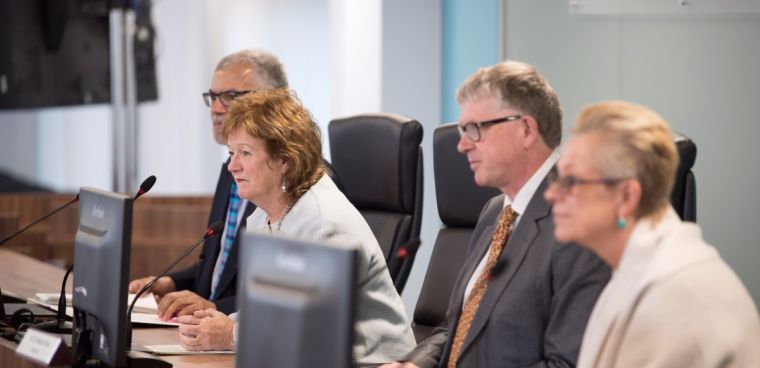'Amateur' and 'shameful': Church of England under intense scrutiny over abuse
The Church of England may have a tendency to make child victims responsible for sexual abuse rather than the perpetrators, an inquiry heard today.
The independent inquiry into child sex abuse began three weeks of public hearings into how the Anglican Church dealt with allegations of abuse today.

Fiona Scolding QC, lead counsel to the inquiry, pointed to a 'culture of excessive deference' towards senior clergy as she asked whether the Church's hierarchical structure fuels secrecy and a tendency to put the reputation of bishops and the Church above the interests of survivors.
The inquiry is examining the diocese of Chichester as a case study for how the broader Church of England responds to abuse. It gathered more than 200,000 pages of documentation and will hear from 64 witness statements over the next three weeks of hearings.
In a damning opening statement to the inquiry Ms Scolding said the evidence pointed to 'an emphasis upon forgiveness [of perpetrators] at the expense of justice and redress for the victims'. She added the hearings may suggest the Church 'put its own reputation as an institution above the need to safeguard children'.
Some vicars would rather resign rather than go through basic safeguarding procedures such as checking criminal records and vetting and barring checks 'because they consider that it is a slur on their character to even be asked such questions' she said.
'These sorts of beliefs require a sustained and systemic campaign of education and of societal shift which can be unfeasibly slow.'
The Church of England as a whole has increased its spending on safeguarding fivefold since 2014 and in Chichester the annual sum on safeguarding has gone from £59,000 in 2010 to £226,000 now.
The archbishop of Canterbury, Justin Welby, is among a number of senior clergymen due to give evidence to the inquiry including former archbishop and the current bishop of Chichester, Martin Warner.
'What should be unique about the Church is that when faced with abuse within its own ranks, it should act with urgency, compassion, transparency and professionalism,' Ms Scolding said.
'You will hear evidence that some of those qualities may have been absent in some of the response of the past.'
She added: 'Its management of allegations of child sexual abuse reflect not just society's difficulties in coming to terms with it, but also how even institutions dedicated to good can both harbour individuals who are malign but also be institutionally incapable of effective responses to concerns about the sexual abuse of children.'
Archbishop Welby said in his statement to the inquiry: 'The failures that we have seen are deeply shaming and I personally find them a cause of horror and sadness. That children have been abused in the communities of the church is indeed shameful.'











